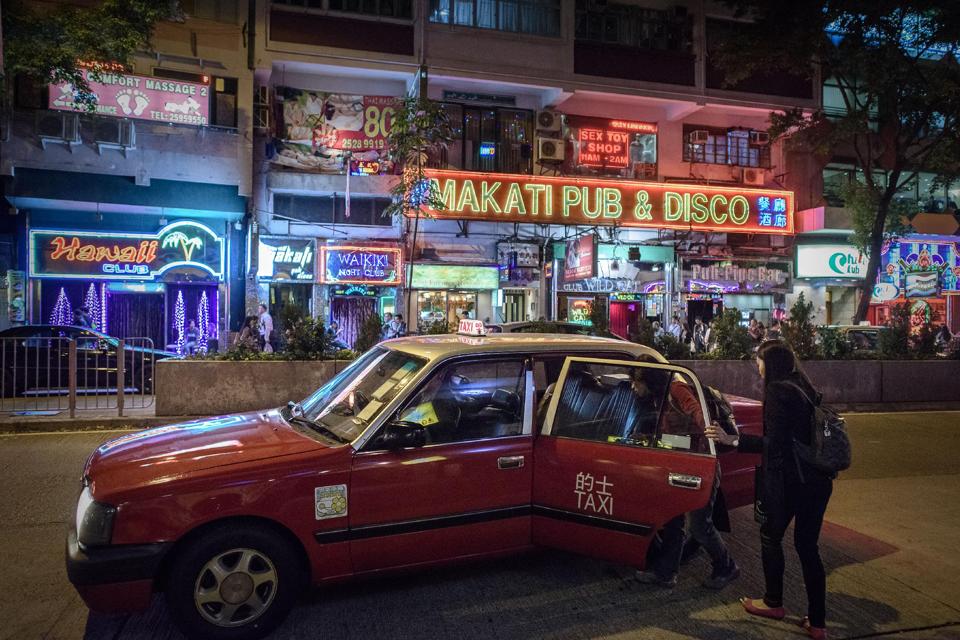Even on a weekday night, the bars of Hong Kong’s Wanchai red-light district are teeming — stern-looking “mama-sans” supervise young women in miniskirts enticing punters with calls of “Hey handsome” and “Let’s party”.
In an upmarket apartment streets away from the neon-lit strip, Sumarti Ningsih and Seneng Mujiahsih — two Indonesian women in their 20s — were brutally murdered.
Their mutilated bodies were discovered on Saturday in the flat of 29-year-old British financier Rurik Jutting, who has since been charged on two counts of murder. Police are investigating whether the victims worked in the sex trade.
The killings are a shocking reminder that, even in one of Asia’s safest cities, the women who work out of the bars of Wanchai are acutely vulnerable.
Maria makes most of her money in a “girlie bar”, where women earn commissions each time clients buy them drinks at inflated prices or request lap dances, watched over by elderly female bosses known as mama-sans.
Many women work out of a single bar, signing contracts with the owners for six-month stints and living in cramped accommodation nearby.
Organised prostitution or running a brothel is illegal in Hong Kong, but an individual selling sex is not. If a woman agrees to the transaction, she will leave the bar and usually pay a “fine” to the venue to compensate for the time spent away from it.
Many of Wanchai’s independent sex workers solicit clients as they drink, but bars themselves can’t sell sex on their premises and women are left with little protection when they leave with a customer.
The murders have brought home that reality to Maria and her peers — but they feel they have no choice.
– A safe haven? –
Once a den of vice and violence, a notorious playground of British and US sailors, Wanchai is now a thriving commercial district filled with offices and trendy restaurants.
But the red-light zone, mainly centred on east-west Lockhart Road, has persisted and is a magnet for wealthy male expats and Western tourists.
Largely Filipina, Thai, Vietnamese and Indonesian, the majority of those working out of the bars are looking for a way out of grinding poverty back home — and are attracted to Hong Kong because of its comparative safety.
Police largely leave sex workers alone and the violent crime rate is one of the lowest in Asia. Just 14 murders were recorded in the first half of this year.
It is not yet known whether Sumarti and Seneng were professional sex workers, or simply trying to find a boyfriend when they met Jutting.
Many of the women who frequent the Wanchai bars do not see themselves as working in the sex trade, says one local charity that helps sex workers.
The purchase of sex in Wanchai is often a grey area, said one expat professional who regularly drinks there and declined to give his name.
– ‘It could have been me’ –
Sumarti, a mother of one from a poor farming background, was in Hong Kong on a tourist visa which had expired and had previously worked as a maid. Her family told AFP they thought she was working in a restaurant.
The Indonesian consulate said Seneng, a regular face in Wanchai, was in Hong Kong on a domestic worker visa until 2012 but her status after that was unknown.
Zi Teng’s Lee said it was common for maids to end up in the sex trade, or working on its fringes, if they lost their jobs.
The murders have given some women working out of the Wanchai bars pause for thought.
But for Cherry, a 25-year-old Filipina mother-of-two, going home is not an option.

COMMENTS
Please let us know if you're having issues with commenting.